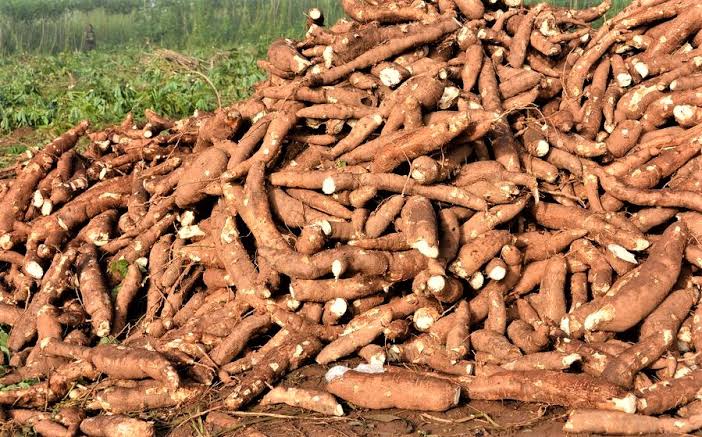An economically sustainable integrated cassava seed offers countries the opportunity to produce and multiply improved stems to boost their economies and increase foreign earnings.
Dr Godwin Atser, Project, BASIC-II Advocacy and Promotion Lead, International Institute of Tropical Agricultural, (IITA), Ibadan, stated this on Friday at the Stakeholders meeting with Local Government Chairmen at IITA Ibadan.
Atser said the essence of the meeting was to promote improved cassava seed under the BASIC-II project at the grassroots, hence the engagement with local government chairmen.
He stated that grooming cassava seed entrepreneurs in communities would tackle the problem of food insecurity and unemployment.
Atser, also a Project Manager, GIZ Cassava and Maize Project, said youths can be encouraged to take up cassava stem production to earn a living and make money for themselves.
“We are urging governments at all levels that they should adopt the seed system model that is being developed by IITA to tackle food insecurity and address job creation in local communities.
“We felt that the local government chairmen are very important because they are close to the people at the grassroots and therefore getting them on board to replicate this model in different communities in their domains for wealth creation and jobs,” he said.
Atser said: “It is important for the Central Bank of Nigeria that is supporting different Agricultural programmes to emphasise the use of improved cassava seeds or stems in their programmes.
“So that farmers will get the improved yield and repay back loans that they have collected from the government.”
He stressed that the government needs to know that cassava has now become a gold mine, which can create economic prosperity and shore up foreign earnings for Nigeria.
Also, the Project leader, BASIC-II, Prof. Lateef Sanni said some of the major challenges to cassava farming in Africa were a lack of formal seed system, low multiplication ratio, low yield per hectare and government disruption, due to free seed distribution, often diseased.
Sanni noted that to solve the challenges in cassava production the issue of low productivity must be addressed,a to become globally competitive.
He said although Nigeria was the highest producer of cassava, this had not brought foreign earnings because the production was being consumed locally.
“There is a need for governments at all levels to provide farmers with affordable, quality assured cassava seeds to create a business ecosystem,” Sanni said.
Dr Mercy Diebiru-Ojo, General Manager, IITA GoSeed, said the utilisation of cassava was increasing with expansion of industrial needs.
She emphasised on the need to attain a balance, to ensure food security and have enough cassava to export so as to increase the nation’s foreign earnings.
Diebiru-Ojo highlighted the need to embrace the clean and improved cassava stems.
“The essence of accessing improved planting material is to be assured of quality, disease-free and stress-tolerant that performs well in its environment and is high yielding.
“However, most of the local varieties on farmers’ fields or on sale by the roadsides are poor yielding and often diseased hence the low yield,” she said.
One of the participants, who shared her success story, Mrs Chichi Ngufan, enjoined women to organise themselves into groups and work together.
Ngufan said she and her women farmers with the use of improved cassava stems have scaled up production and earn good money.
